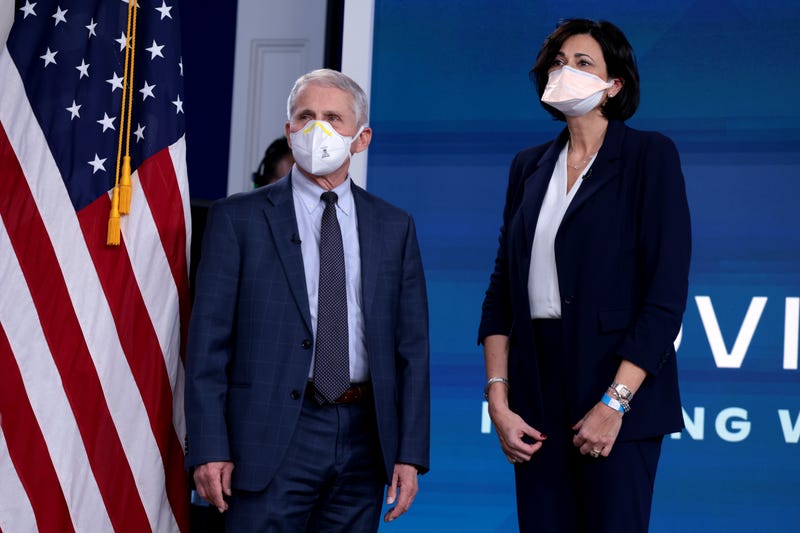
The U.S. Centers for Disease Control and Prevention's updated quarantine and isolation recommendations for COVID-19 reflect the new reality of the omicron variant.
Dr. Peter Chin-Hong, Professor of Medicine at UCSF, told KCBS Radio’s Patti Reising and Kris Ankarlo that the agency was pressed into action on Monday due to our updated understanding of how COVID-19 is transmitted, as well as states, local jurisdictions and even professional sports leagues taking matters into their own hands to update isolation requirements as omicron has taken hold.

"I think all of this is, really, in the face of a fast-moving and really, really disruptive variant," Chin-Hong said on Monday.
Previously, the agency recommended people who tested positive without symptoms to isolate for 10 days. Now, they’re recommending asymptomatic people isolate themselves for five days. If they’re still asymptomatic at that point, a person can leave isolation, provided they wear a mask for the next five days.
Those requirements hold for people exposed to COVID-19 who are unvaccinated, or who were fully vaccinated more than six months ago but haven’t yet received a booster.
People who have been exposed but are boosted don't need to quarantine, but they must wear a mask for the following 10 days. Everyone is advised to undergo a COVID-19 test five days after exposure.
"If you're boosted, you're kind of free to go about your business if you've been exposed credibly, and I think a lot of people get confused as to what a credible exposure is," Chin-Hong explained.
"It's not necessarily passing somebody outdoors, and then you find out that person has COVID and you were passing them for a few seconds," he continued. "It's not even seeing someone indoors and you're masked, both people are masked. So it's really an unmasked exposure for more than 15 minutes, less than six feet apart. And yes, if you're boosted, you don't even have to worry about anything."
The CDC said the new guidance reflects research showing transmission typically occurs no more than two days before the onset of symptoms, and only up to three days after exposure. Chin-Hong said this is "kind of an omicron phenomenon," as previous recommendations were based on a longer incubation period.
Although Chin-Hong noted the new recommendations have "been applauded by many people," risks remain. Ten days was a long, often impractical time for asymptomatic people to isolate themselves, but he stressed that a five-day isolation period doesn’t mean symptomatic people can return to their lives at that point if they’re still sick.
Chin-Hong noted "a lot of people are going to take this news with some trepidation."
"I think a lot of workers are worried that they may be forced to work earlier than they may otherwise if they're not feeling completely 100%," he said.

